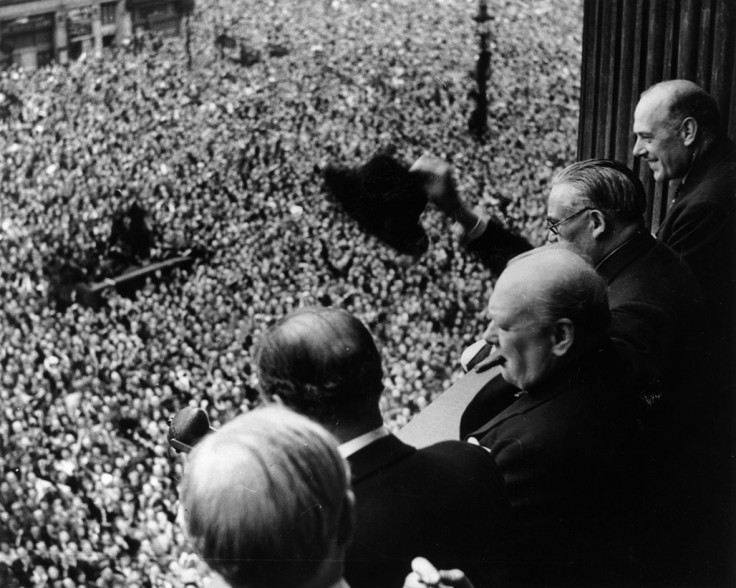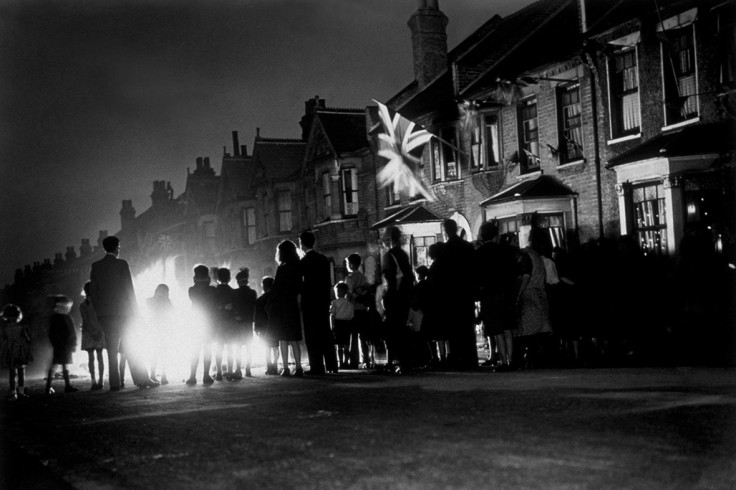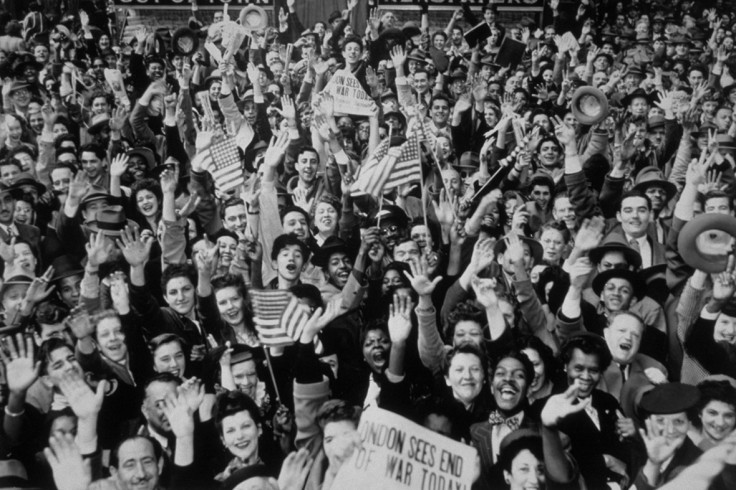VE Day: A short history of the day the Second World War ended for Europe

It has been 70 years since the first Victory in Europe day was marked on 8 May 1945, bringing an end to the Second World War. Celebrations erupted across the world upon hearing of Germany's surrender and more than one million people celebrated in the streets to mark the end of the European part of the war, with street parties of cheering crowds, dancing and singing.
After the suicide of Hitler on 30 April 1945, his successor as the president of the Third Reich Grand Admiral Donitz was left to surrender. One week later, shortly before 3am on Monday 7 May, Donitz send German General Alfred Jodl to sign the unconditional surrender in Reims, France, in the presence of authorities from Britain, the United States and Russia. The act of military surrender was signed on 8 May in Berlin.
On the evening of 7 May, the Ministry of Information made a short announcement: "In accordance with arrangements between the three great powers, tomorrow, Tuesday, will be treated as Victory in Europe Day and will be regarded as a holiday." Thousands took to the streets to celebrate following the news.
VE Day was the beginning of an end to years of hardship and austerity, of food rations and the "make do and mend" attitude of the Second World War. To find out more, many across the nation turned on the wireless for further details of Germany's surrender.

At 3pm, crowds gathered to hear Winston Churchill's radio broadcast, piped through loudspeakers in Trafalgar Square. King George VI and Queen Elizabeth, accompanied by the prime minister himself, appeared on the balcony of Buckingham Palace in front of swathes of cheering Londoners. Princess Elizabeth, the future queen, and her sister Margaret were allowed to wander through the crowds to take part in the celebrations.
In his speech, Churchill paid tribute to the men and women who had laid down their lives for the victory. "This is your victory," he said.
"We may allow ourselves a brief period of rejoicing; but let us not forget for a moment the toil and efforts that lie ahead. Japan with all her treachery and greed, remains unsubdued."
"We must now devote all our strength and resources to the completion of our task, both at home and abroad. Advance Britannia."
Across the UK, communities drank, sang and danced, but for the many mourning loved ones killed in service or an air aid, the victory was marred with sadness. But the day, for everyone, brought an end to six years of misery, courage and endurance – and while rationing was still in place, the 8 May was a day for many to finally let their hair down, a sign of better times to come.

Eric Goldrein, 94, from Hale Village, Liverpool, served with the Royal Artillery during the Second World War. He was in Italy when the news came through that the war in Europe was over.
"We celebrated in a field, the Signallers set up speakers playing music and the locals came out and joined in too, happy that the war was finally over," he said. "I heard about the street parties back home and I'm looking forward to being part of these 70th Anniversary celebrations."
The last official VE Day event was broadcast to the nation by the king at around 9pm. For the first time since 1939, Buckingham Palace was lit up by floodlights. A giant "V" from two floodlights was created above St Paul's Cathedral – a symbolic gesture for a city that had spent years in darkness.
In the United States, VE Day was marked on President Harry Truman's 61<sup>st birthday. While flags remained at half-mast for the passing of Franklin Roosevelt just weeks earlier, massive celebrations took place in Washington, New York's Times Square, Los Angeles, Miami and Chicago. Three months later, Victory in Japan Day ended the Pacific conflict with Japan, after they announced their surrender on 15 August 1945.
© Copyright IBTimes 2025. All rights reserved.






















